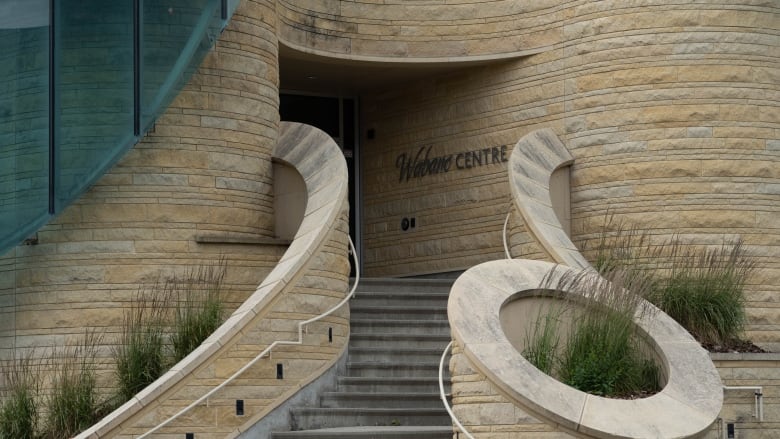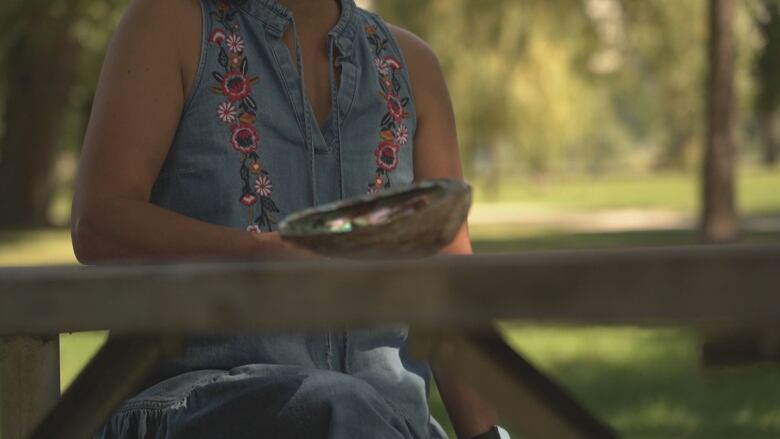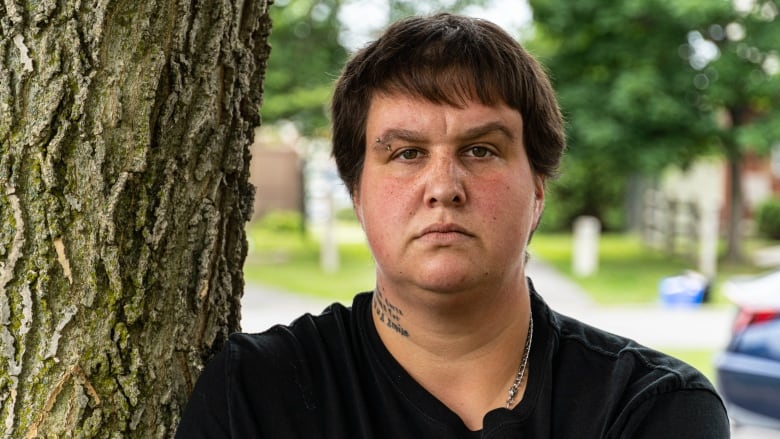Several women have come forward with allegations of sexual assault against a traditional healer who for months provided services at the Wabano Centre for Aboriginal Health in Ottawa.
They say the organization knew about their concerns but didn’t do enough to support affected staff and clients.
CBC has spoken to five women, including three former employees and one client of Wabano who alleged unwanted touching while they were alone with Ralph King, an Ojibwe-Anishinaabeg healer from Moose Deer Point First Nation.
Wabano terminated its relationship with King and banned him from its premises in the spring following complaints of “inappropriate behaviour,” according to an internal memo dated April 21, 2021.
King has not been charged or convicted of any crime in relation to these allegations. CBC made multiple attempts to contact him, but he had not responded at the time of publication.
According to the centre, King provided healing services between November 2020 and March 2021, and he was previously described as a “passionate Indigenous traditional healer/medicine man,” according to internal Wabano emails.
He was brought to the centre periodically to provide one-on-one visits with First Nation, Inuit and Métis community members, as well as staff, the emails said.

In a statement to CBC, Wabano Centre said it cut ties with King due to alleged “misconduct” and “inappropriate communications.”
“To be very, very clear, Wabano to date has not received any complaints regarding sexual assault allegations either from staff or clients,” read the statement.
Two of the five women CBC spoke with say they have filed reports with the Ottawa Police Service.
In its statement, Wabano said the centre was approached by Ottawa police in August and is “cooperating with their fact finding.” Police said they can neither confirm nor deny an investigation about a named person unless a charge is laid, but the service “fully investigates all complaints of sexual assault.”
Fired for being a victim, says former employee
Mindy Smith, the former programs director at Wabano, said she saw King as a client of Wabano in March 2021 — three months prior to starting her job at the organization.
Smith said she saw King twice between March 24 and 26 inside the Cedar Lodge at the Wabano Centre. Smith, who is Mi’gmaq First Nations with ancestral ties to the Listuguj First Nation in eastern Quebec, said she immediately felt comfortable with King during their first appointment.
“I’m a pretty strong, intuitive woman, but he was able to zero right in on my vulnerabilities,” she said.
Smith had made the appointment in search of spiritual healing from sexual trauma she experienced as a child. She described how spiritual healers often use a small deer bone, which is only about five centimetres long, to take negative energy from the body.
“He put the deer bone on my breasts and on my vagina several times, touching the insides of my legs,” said Smith, who also said he used his hands to touch those areas without asking permission.
She said it’s hard to describe how she was feeling at the time because she already knew it would be an uneasy experience due to the subject matter.
‘Uncomfortable’ text messages
Smith said King then asked for her phone number and the pair started corresponding via text. The messages, some of which were reviewed by CBC, depict a friendly relationship that lasted about a month.
Smith said she was still looking for healing, and because of King’s status, she wanted to maintain the relationship. Their discussions seemed mostly light, and included updates on their day and how happy they were to have met each other.
Smith asked whether he treated other clients this way and said she sought clarification regarding their relationship because King would sometimes say things to imply it wasn’t just a friendship.

Then on March 31, one week after he met Smith, King said he needed a massage and she recommended someone in Ottawa. He questioned whether that person was “hot,” to which she said she was a “cutie” but didn’t offer happy-ending massages.
King then texted a response that said: “Dam, Then maybe you could do it. The massage. Lmao.”
Smith described feeling very uncomfortable with his response, and said she tried to laugh it off, writing: “LMFAO.”
In another exchange on April 1, King told Smith: “The old lady is sleeping now.” Smith then asked for advice on helping her daughter who recently lost a friend, and he simply replied: “And I have a bone, Lol.”
Smith said she tried to laugh that message off, too, responding: “Omg go wake her up and don’t call her old lady or I’ll kick your ass bone or no bone.”
King described as ‘sexual predator’
The texting stopped when Smith said she heard others at Wabano described King as a “sexual predator.”
In June, Smith was hired as the programs director at Wabano. She didn’t bring up her experience with King to management right away, she said, because she believed an internal investigation was already in the works.
“It’s really easy to put your own trauma on the back seat, on the back-burner while you’re trying to help so many others. … I just stopped thinking about it, until I realized that nothing had been done,” she said.
One week after she did tell human resources about her experience with King, she says Wabano fired her. She believes she was let go because Wabano thought she had contacted police.
Wabano said that claim is “patently untrue,” but wouldn’t comment further on internal human resource matters, citing privacy.
According to Wabano’s statement to CBC, the centre has taken several actions to support its staff, including offering one-on-one meetings with management, healing circles, time off, clinical and cultural services, and access to the organization’s employee assistance plan.
‘They should have called police’
Another former employee described a similar experience with King during her visits in February and March. As an alleged victim of sexual assault, CBC is not identifying this woman.
She saw King for an appointment twice and although she felt uncomfortable during her first visit, she said she went back because she thought it might have been in her head, and perhaps his healing techniques were normal.
During the second visit, she said King once again used a deer bone and his hands to touch above and below her breasts, on her buttocks and around her pelvis.
She said he didn’t ask permission, and at the end of the session she consented to a hug, but it went on longer than she thought.
“I wanted to push him away, and I was trying, and he wouldn’t let go … I really felt uncomfortable and violated,” she said.

When the employee learned a colleague had a similar experience with King, she said she spoke with her supervisor in April because she worried about her clients.
“We need to support them … and they were adamant, said we’re not calling the clients, they’re going to come to us if they need support,” she recalled.
Prior to her visit, she had recommended King to clients, as directed by the Culture Team at Wabano.
“They should have had a healing circle for [the clients] right away. They should have called the police and notified them that this man needs to be stopped right now and not tomorrow.
“They didn’t do any of that,” she said.
Healing circle for staff
Amanda Earle, a former employee who first spoke to CBC in June about allegations of money mismanagement and harassment at Wabano, said management “reluctantly” agreed to host a healing circle in May for staff who said they were victims of King.

Earle said King also touched above and below her breast without permission. She shared her story as part of the healing circle, along with four other employees.
CBC first asked Wabano about King in an email on June 25, but Earle and the other former employee, who CBC is not naming, both said the centre only started calling King’s clients after that email.
Client says Wabano didn’t call
At least one client said Wabano never called her about King. CBC has agreed not to name her because she fears reprisal for people she knows who work at Wabano.
The client said she recently sought programming at the centre for spiritual healing and cultural teachings, which her family wasn’t afforded due to residential schools.
During her session with King she said he also used a deer bone across her chest and asked very personal questions about her sexual relationships.
“At first I wasn’t sure if it was inappropriate, it felt uncomfortable and it felt weird,” she said.
As an Indigenous person who was reconnecting and seeking teachings, the client said she felt shame about not knowing her culture and didn’t want to question the process.
“I put my trust in Wabano and they did betray that trust, by not even literally caring at all to see if I was okay.”
The City of Ottawa — one of the non-profit’s main funding sources — is currently investigating complaints of harassment, bullying and improper use of funds within Wabano, which are unrelated to the recent allegations.
The city says that work should be complete in December.





